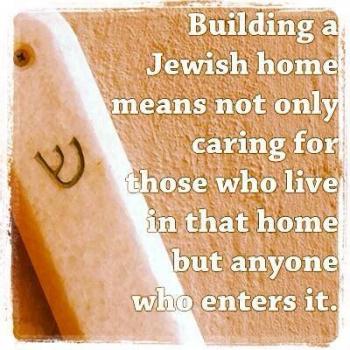By Gregory
Rabbi and scholar, Arthur Green makes a fascinating claim in his book, Radical Judaism. Green argues that the Jews are not so much the chosen people as a choosing people.
As he wrestles with the meaning of covenant and the myth of Sinai, Green argues, as do I, that the vast majority of modern Jews have moved beyond simplistic notions of God. Too much water has passed under the bridge of suffering for most of us to think of God as some sort of divine Santa-Claus living above the sky. Most of us no longer engage in saccharine notions of divinity and some Jews have given up on theism altogether.
Progressive and alternative views on God require a rethinking of the significant and central Jewish myths – Sinai included.
Who – or what – did the Jews enter into covenant with at Sinai? What exactly transpired that day at the mountain? If more complex notions of God make visions of a personal God speaking from atop a mountain outdated – then what do we make of the myth of Sinai?
Green notes an interesting fact concerning Sinai and the entering of the covenant – it’s not commanded by God – there is no divine command to assemble at Mt. Sinai and enter the covenant. In fact, reading the text closely, it seems like the whole affairs is mostly Moses’ idea.
Yet in a way, that makes total sense; contracts and covenants can’t be entered under duress, one can’t be compelled to sign-on; one must freely chose to give oneself in such matters, otherwise, the commitment and the ensuing relationship are meaningless.
At Sinai, the ancient Hebrews became a choosing people – our ancestors began the process of choosing to bind themselves to Yahweh and thus aligning themselves with the Source of being and meaning in the world as they best understood it. They decided how to employ their newly gained freedom given them at the Exodus – a decision all free people face every day.
Sinai tells us that to be a Jew is to be a person who is part of a sacred community that is defined by its choices. The original community of our spiritual ancestors formed around the notion of entering and living in covenant with the divine – and this process of choosing continues – those who choose to walk this path are Jews, although we are certainly not the only ones on this path and journey. (Ponder this fact the next time you’re part of a conversation about matrilineal or patrilineal descent or the intricacies of Jewish conversion.)
I believe that the One is revealed and accessible to all hearts and minds, to all people, in much the same way. How is the Jewish response to covenant unique? The variation comes from our end, from the unique moral and cultural responses that have been part of the Jewish response to life, to goodness, to justice, and their Source, in each generation. Jews are often trailblazers in this regard.
What exactly does the covenant entail? What are our commitments?
Broadly speaking, the answer from within a strictly Jewish framework is to engage Torah and Mitzvot. We accept the challenge of treating Torah as our story, of finding the meaning of our lives in its narrative, and in shaping our lives according to its best teaching.
Again, this process is one of choosing – we are free people as the Exodus narrative so strongly teaches. As free people – and spiritually mature people – we don’t engage the sacred text slavishly, rather we sift through it in a never-ending dialog, reading, interpreting, and yes, even editing the text.
Jews grasp that the best of Torah is rooted in a core of teachings that include loving our neighbor as our self, loving the stranger and dispossessed, seeking justice even when it’s unpopular or costly, and making kindness a priority in all our interactions with others.
To stand at Sinai is to accept a challenge and set of commitments to regard one’s entire life as a channel for bringing divine presence and blessing into the world. The essence of Judaism is to be part of a community conversation about an identity shaped by justice, love, compassion, and freedom.
To stand at Sinai is to affirm one’s freedom and dignity and to enter an ongoing sacred conversation about the meaning of life and love.
Thoughts?











